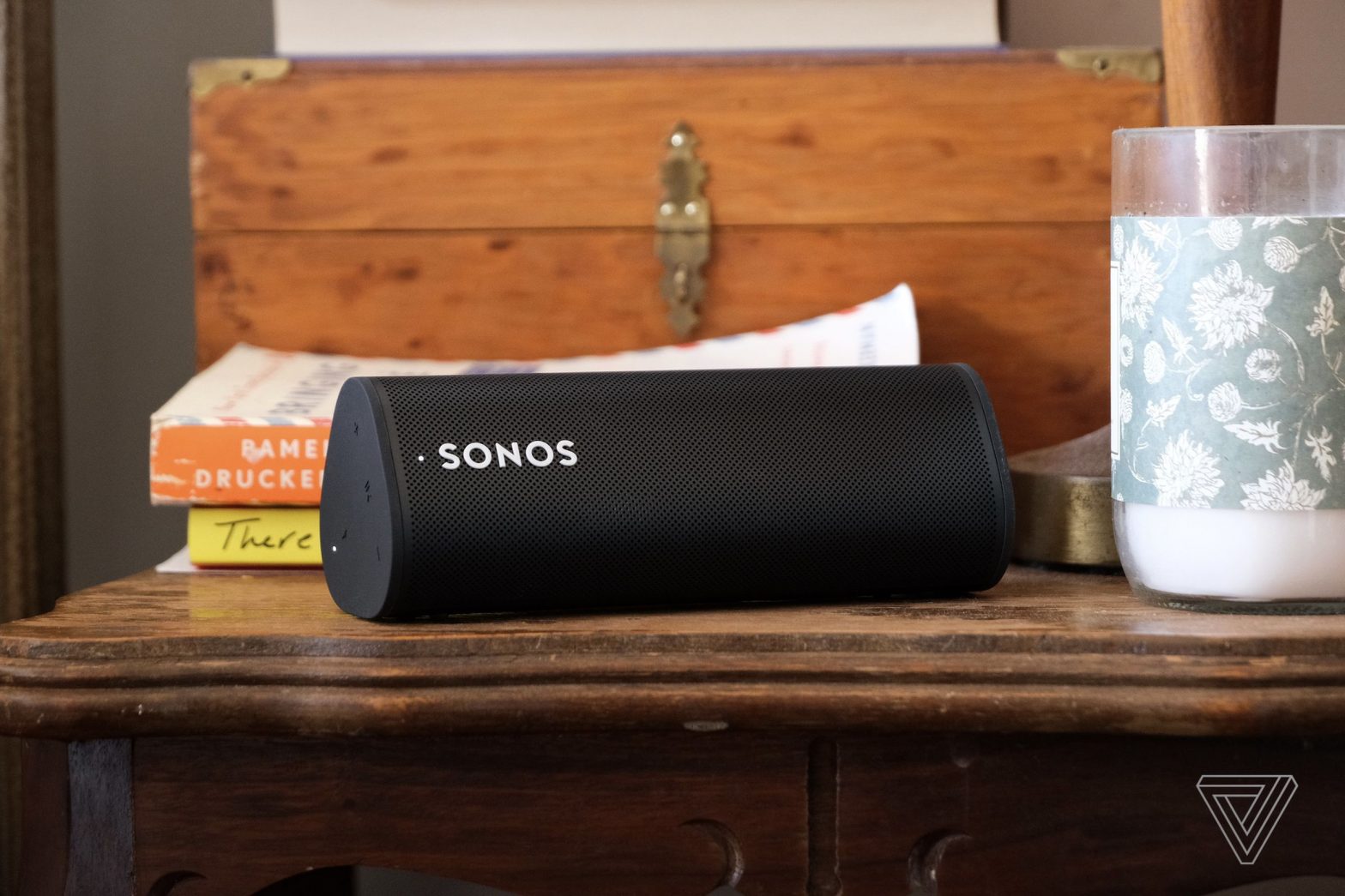/
The cuts will affect around 130 people, and Sonos also says it will reduce its real estate footprint in the months ahead.
Share this story
If you buy something from a Verge link, Vox Media may earn a commission. See our ethics statement.
:format(webp)/cdn.vox-cdn.com/uploads/chorus_asset/file/22422273/RoamSidetable.jpg)
In a filing with the SEC on Wednesday, Sonos shared news that it’s laying off 7 percent of its staff. The company is “also committed to further reducing its real estate footprint and re-evaluating certain program spend,” Sonos said in the 8-K filing. The company reported having 1,844 employees as of last October. It’s reasonable to assume Sonos has hired more people since then, but that total indicates the cuts would affect at least 130 roles.
“We have acknowledged that if we started to deviate from our performance expectations, we would take action to adapt and protect profitability while still investing in our exciting product roadmap to drive future growth,” Sonos CEO Patrick Spence said in a statement. “In the face of continued headwinds, we have had to make some hard choices, including eliminating some positions and reevaluating program spend.”
“Right now, our number one priority is providing our departing teammates a respectful and compassionate transition and have focused on providing resources to support our employees financially, mentally, and professionally as they navigate what comes next,” Spence added.
:format(webp)/cdn.vox-cdn.com/uploads/chorus_asset/file/24530065/DSCF0447.jpg)
Sonos hasn’t made significant layoffs since mid-2020, when the company cut 12 percent of employees globally as the coronavirus pandemic took hold. That move also saw Sonos close down its four-year-old New York City retail store, and numerous executives took pay cuts.
This time around, the company “estimates that it will incur approximately $11 to $14 million of restructuring and related charges, of which $9 to $11 million is related to employee severance and benefits costs.” Sonos currently operates 10 offices globally, with US locations in Santa Barbara (where it’s headquartered), Boston, Seattle, and San Francisco. But the company has been a strong proponent of hiring full-time remote workers over the last couple years, so some of those spaces are likely to close before long.
Those “headwinds” mentioned by Spence include a noticeable slowdown in consumer demand for the company’s speakers and home theater products. Last month, Sonos lowered its annual revenue forecast after reporting a year-over-year revenue drop of nearly 24 percent. That news sent the company’s stock tumbling. Brighter news came a few weeks later when Sonos won a $32.5 million patent infringement judgment against Google.
After releasing the Era 100 smart speaker and spatial audio-focused Era 300 in March, the company’s next consumer hardware product is expected to be a second-generation Sonos Move speaker. That device recently passed through the FCC ahead of an expected launch this summer.
